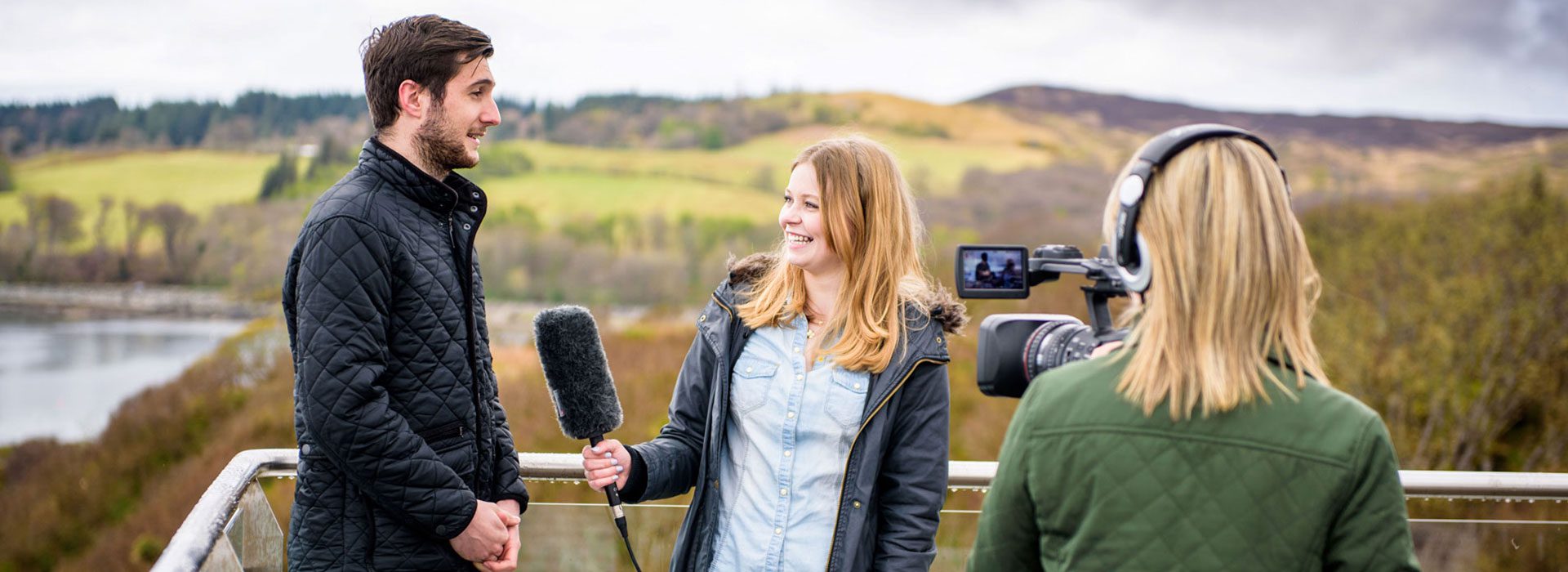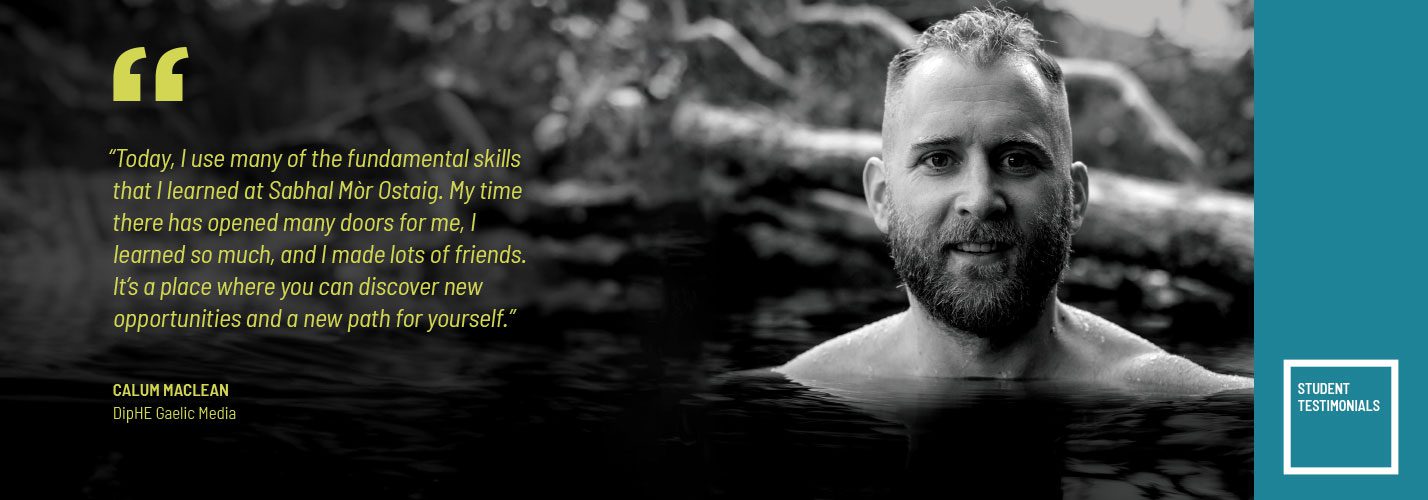
DipHE Gaelic Media
AWARD: Diploma of Higher EducationSTUDY MODE: On-campus
DURATION: 2 YEARS
CODE: P390
COURSE LEADER: Catriona Johnston
COURSE CONTACT: Eilidh Grant ( )
DESCRIPTION
Sabhal Mòr Ostaig has successfully provided training in Gaelic media for almost 30 years. The structure of the courses and the practical training provided at the College has allowed students to enter a wide range of professions in the Gaelic media. The Diploma has a very high employment rate, with 70% of alumni gaining employment in the media industry.
The DipHE Gaelic Media course is delivered by Sabhal Mòr Ostaig in conjunction with the broadcast and media industry in Scotland. Year 1 is college-based and Year 2 includes a 10-month placement in the broadcast and media environment.
Throughout the course, students have the opportunity to develop the necessary technical, creative and logistical skills required for direct entry to the workplace while enhancing their language skills both on campus and in the wider Gaelic community. The award helps candidates develop a wide range of industry-specific knowledge and skills as well as transferable skills.
The aim of the award is to produce graduates who will be fully equipped to shape the future of the industry.
COURSE CONTENT
The learning and teaching for this DipHE Gaelic Media programme is grounded in professional practice, with the programme designed to develop individual and team capability to enhance that practice. Students will have the opportunity to develop the necessary technical, creative and logistical skills required for direct entry to the workplace while enhancing their language skills both at college and in the wider Gaelic community.
The qualification gives candidates the opportunity to develop a wide range of industry-specific knowledge and skills, whilst also developing transferable skills. The aim of the programme is to produce graduates who will be fully equipped to shape the future of the industry.
Students will be taught in a work-based production environment and, through a structured learning programme, will quickly apply and adapt their learning to meet the needs of their future employers. The students will work with industry professionals throughout the programme, across a range of modules, providing opportunities to develop invaluable networks.
During Year 1 of the DipHE Gaelic Media, students will have the opportunity to spend a week undertaking work-based learning with a BBC Outside Broadcast Unit at The Royal National Mòd. The programme will also include workshops in various skills which are essential in the current media workplace.
The delivery model will be a combination of on-campus and off-campus. During Year 2 of the course, students will spend 10 months at various media companies and broadcasters off-campus – an unparalleled opportunity.
CORE MODULES YEAR 1
Module Code: UP307002
Credits: 20
This module introduces students to the principles and conventions of broadcast news journalism and equips them with basic skills required to produce items for news media. It examines the nature of news, issues of bias and objectivity, as well as legal and ethical questions.
On successful completion of this module, students should be able to:
- Describe a typical news gathering operation.
- Produce basic news stories for broadcast on both radio and television.
- Produce basic news features for broadcast on both radio and television.
Module Code: UP307003
Credits: 20
This module gives the student an introduction to the process of developing programme ideas and taking them forward to production. It looks at different kinds of programming, with a focus on the practicalities of programme-making. It looks in detail at the programme-planning process, leading to the full development of a shooting script and the filming of a factual programme.
On successful completion of this module, students should be able to:
- Analyse types of television programmes.
- Understand the process of television production.
- Communicate effectively with others while planning and filming a television documentary.
Module Code: UP307004
Credits: 20
This module is mainly a practical module in which the student researches, plans, scripts ,records and edits a short radio programme. As well as the practical skills involved, it develops the student’s awareness of the process of radio production, and a more general appreciation of the role of radio, particularly in a minority language context.
On successful completion of this module, students should:
- Have an understanding of the process of radio production.
- Have the ability to create an effective radio programme.
- Have the ability to analyse different types of programme in radio broadcasting.
Module Code: UP307006
Credits: 20
This module will give students the opportunity to develop their practical skills in using non-linear editing software. They will develop an understanding of digital production workflows and encourage them to think creatively in response to a given brief.
Students will work on existing footage acquired from the modules Basic Technical Operations and Research and Production to develop their skills. They will be asked to present a 5 minute edited programme which will develop their ability to communicate their concepts effectively.
On successful completion of this module, students should be able to:
- Accurately identify and prepare all relevant source materials for editing to meet the requirements of a given brief.
- Capture all relevant footage and develop skills and creativity to produce a rough-cut edit applying effects and techniques to enhance the story of a film.
- Effectively coordinate creative, technical and personal skills and resources and make a fine-cut edit enhancing the story of the film whilst also demonstrating post-production management in accordance with current professionally accepted processes.
Module Code: UP307005
Credits: 20
This module looks at communication. It provides an introduction to the practical skills required for writing, interviewing and presenting for broadcasting. It also considers the various constraints – institutional, legal, ethical, social – on all forms of communication in broadcasting.
On successful completion of this module, students should be able to:
- Demonstrate that their Gaelic communicative and literacy skills are appropriate to the requirements of the module, i.e. that they have participated fully and with understanding in discussions, listening/viewing exercises and collaborative exercises and that they have produced lucid and articulate documentation as required in the fulfillment of the practical exercises.
- Understand the constraints on the industry practitioner when broadcasting.
- Demonstrate basic skills for front of microphone and writing for broadcasting.
Module Code: UP307007
Credits: 20
The module will give students a comprehensive introduction to using a digital video camera, sound recording and lighting equipment. The recorded footage should demonstrate that the student can frame, compose and record shots to achieve visual continuity; that the student is able to control sound sources to achieve the required level ,tonal quality and intelligibility required; that the student is able to identify lighting requirements and implement these where necessary when recording shots. While working as a member of a production team the student will develop a broad range of skills while communicating with other team members.
On successful completion of this module, students should be able to:
- Rig, set and make adjustments to a camera; frame, compose and record shots to achieve visual continuity.
- Evaluate sound requirements for a location shoot and make and log sound recordings
- Recognise and implement lighting requirements.
CORE MODULES YEAR 2
Module Code: UQ508464
Credits: 20
The purpose of this module is to provide students with a workplacement which will develop their personal career objectives. The student and the module tutor in conjunction with the MG Alba workplacement Advisory Committee will select an appropriate placement/s based on industry requirements ,the student’s area of interest/desired career path and opportunities for development of Gaelic language skills. The chosen companies will meet with the student and complete a recognised Workplacement Aims form focusing on employability. The student will undertake the agreed placement/s and will keep a log of the placement/s. This will provide evidence that all aims and objectives previously agreed are met. On completion of the workplacement/s students will complete an evaluative report.
On successful completion of this module, students should be able to:
- Demonstrate the personal skills required for effective self-development with regard to employability in a production team environment.
- Demonstrate that they can successfully complete a work placement.
- Evaluate a work placement on completion of the placement.
Module Code: UP308406
Credits: 40
In this module students have the opportunity to develop their professional skills through a work placement in the media. In the practical work students must produce 10 minutes of content, suitable for television, radio or the internet.
Module Code: UQ508462
Credits: 40
The purpose of this module is to provide students with an opportunity to develop their skills for employment within an industry environment whilst using their Gaelic language skills confidently and effectively in the workplace. The student will prepare a CV including industry relevant personal statement. The student will prepare two Gaelic programme proposals and deliver two programme pitches. One proposal will then be selected and taken forward to production.
On successful completion of this module, students should be able to:
- Demonstrate the personal skills required for effective self-development with regard to Gaelic language and employability skills.
- Professionally present industry standard programme proposals and pitches to commissioning requirements.
Module Code: UQ508463
Credits: 20
The purpose of this module is to provide students with an opportunity to experience a media work environment. The student will undertake a specific programme placement for an agreed period of time in their chosen field of training. At the end of the specific programme placement they will have generated a reflective log and their mentors/managers will have completed feedback documentation and an appraisal form detailing the student’s achievements and any further training recommendations
On successful completion of this module, students should be able to:
- Demonstrate the personal skills required for effective self-development with regard to employability skills.
- Demonstrate that they can effectively negotiate, undertake and successfully complete a work placement.
- Effectively report on a specific work placement on completion of the placement.
Entry Requirements
Qualifications
- 3 Highers at grades BBC, preferably including a B in Gàidhlig; or
- Formal qualification such as a university degree, HNC or HND, but entry is at the discretion of the College.

Also at the discretion of the centre, candidates will be expected to demonstrate that they have a commitment to working in the industry.
Language Skills
Competence in Gaelic is essential. Candidates will also be expected to have a certain level of fluency in both spoken and written Gaelic, which will be assessed during the interview process.
Sabhal Mòr Ostaig offers immersion courses for Gaelic learners who might wish to progress onto this course or any of our other Higher Education courses.
How to Apply
All prospective students must apply through the Universities and Colleges Admissions Service (UCAS). This is the central admissions service for all universities and colleges of higher education in the UK.
COURSE FEE 2025/26
* In most cases, Scottish domiciled fee status students have their fees paid for them by the Student Awards Agency for Scotland (SAAS) and may be eligible for living cost support.
Full-time students, fee per year (120 credits)

